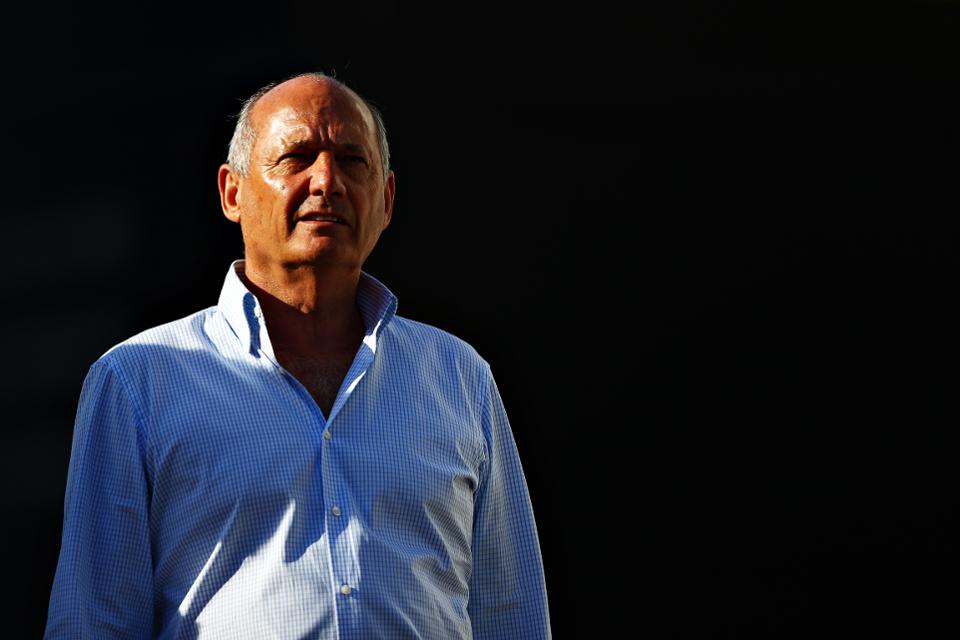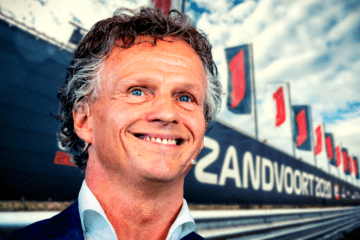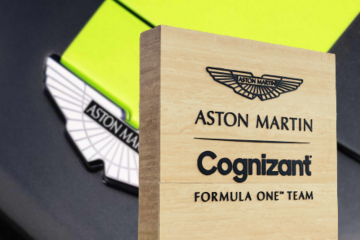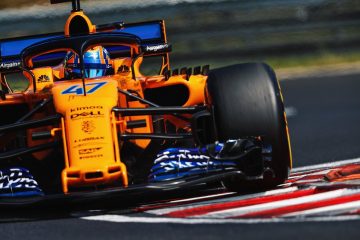The Real Reason McLaren Is Considering Selling A Stake In Its F1 Team
Late last week British television network Sky News reported that the owners of the McLaren Formula One team are considering selling a stake in the squad as they try to raise hundreds of millions of Dollars to navigate the coronavirus crisis. It came as a surprise to some in the industry but it shouldn’t have.
Last month we revealed that the McLaren Group, which also manufactures supercars, is facing a cash crunch due to the timing of payments to suppliers. In light of this it seems unlikely that McLaren would be able to fuel its F1 team’s ambitions to return to the front of the grid after years of reversing results.
McLaren was founded in 1963 making it the second oldest F1 team after Ferrari. It is also the second most-successful squad with 12 drivers’ titles to its name thanks to some of F1’s most famous names including Alain Prost and Ayrton Senna. However it hasn’t won the championship since reigning champion Lewis Hamilton steered it to victory in 2008. Five years later Hamilton joined the rival Mercedes team but it wasn’t until 2015 that McLaren’s performance hit the skids when it began using Honda engines.
The Japanese auto giant returned to F1 after a six-year hiatus and failed to get to grips with its new 1.6 liter V6 turbo engines. It led to McLaren crashing from fifth place in 2014 to to a low of ninth in 2015. However, its performance has accelerated since 2016 when American sports executive Zak Brown took over the wheel of McLaren from its former boss Ron Dennis.
Brown replaced Honda with Renault and signed up rising race stars Lando Norris and Carlos Sainz Jr. It boosted the team to a peak of fourth in the standings last year but it came at quite a cost.
Although McLaren fell on hard times whilst Dennis was in the driving seat, he had more impact on the company than anyone else in its history. When Dennis bought McLaren in 1981 it was a struggling F1 team but he transformed it into one of the sport’s most famous names and a supercar maker which sold 4,662 vehicles in 2019.

Over the years Dennis sold down his stake in McLaren leaving him with 25% which the company bought off him for $333 million when he stepped down. As we have reported McLaren financed the transaction by borrowing money and there were two components to this.
One was a Sterling bond of $450 million (£370 million) and the other was a $250 million Dollar bond traded on the international stock exchange. The proceeds weren’t just used to acquire Dennis’ 25% stake but also to settle transaction fees, refinance debt and repay shareholder loans.
It left Bahrain’s Mumtalakat sovereign wealth fund in control of McLaren with a 57.7% stake. The Saudi TAG Group holds 14.7% whilst 10% is in the hands of Canadian tycoon Michael Latifi and the remainder is owned by minority investors. There has been talk of them exiting through a flotation though we revealed in The Guardian in 2011 that this isn’t likely.
McLaren’s bonds are secured on a suite of assets including its Intellectual Property portfolio, its palatial premises in Britain and collection of historic race cars. This security is what has driven it into a tight spot.
McLaren is most famous for F1 but supercar sales drive the bulk of its business. Last year they generated 83.9% of its $1.8 billion (£1.5 billion) revenue with F1 representing 12.5% and the remainder coming from McLaren’s engineering division which applies developments from racing to other industries.
As McLaren headed into 2020 the outlook was so rosy that it planned to reduce the number of cars it produced in order to make them more exclusive. As we revealed in Britain’s Daily Mail newspaper, McLaren’s shareholders injected $368.8 million (£300 million) into the company in February and March to keep it ticking over as it scaled down. When the coronavirus crisis began McLaren had to use this funding to keep its wheels turning and it soon became apparent that even that wouldn’t be enough.
In the first three months of 2019, McLaren sold 953 cars but this crashed to just 307 in the same period this year due to the closure of dealerships to prevent the spread of coronavirus. It led to McLaren’s revenue falling $217.7 million to $136.2 million whilst its pre-tax loss accelerated by a staggering 600% to $165.6 million. The worst was yet to come.

With dealerships still closed, McLaren’s revenue is on track to be down in the second quarter of this year as well and, to make matters worse, that is when it needs to foot the bill for the cars which it built in the first three months. This is because it pays suppliers 60 days after the end of the month that they submitted their invoice. These costs need to be met despite McLaren having greatly reduced revenue and this explains why it forecast last month that it will face “an unexpected need for liquidity which will impact the Group around the middle of the year.
“Working capital funding is being sought to support the Group’s liquidity requirements with discussions with third parties ongoing. McLaren Group is currently looking at a number of potential financing alternatives, secured and unsecured, of up to £275 million [$333 million].”
To summarize, McLaren needs money to pay the bills for the cars that it made before the pandemic began because it isn’t selling enough of them to cover the costs. The dent this has made in its fortunes recently came to light in a lawsuit filed by McLaren.
In order to raise more money, McLaren wants to release the security over its property and historic car collection so that it can sell them or secure another loan on them. McLaren recently proposed this transaction to the owners of its bonds, known in the trade as Note holders, but they refused to release the assets from the security.
The Note holders proposed an alternative financing plan because they said they would be left high and dry if the money owed by McLaren is no longer secured on the assets. McLaren disagreed and sued the Note holders in the hope that the judge will declare that they have to release the assets. There is a lot at stake.
In legal filings for a hearing in London’s High Court on Friday, McLaren said that “the Proposed Transactions will enable the Group to access the additional liquidity that is required to ensure that the Group can continue as a going concern into 2021. This will provide a significant benefit to the creditors of the Group (by preventing a cash flow crisis and a value destructive insolvency).”
In summary, McLaren says it will become insolvent if the Note holders don’t allow it to release the assets from the security and sell them or secure a new loan on them. It adds that the judge will need to issue a declaration in favor of McLaren in just 17 days so that it can get the deal over the finish line.
The filings reveal that “the Group needs to obtain declaratory relief in advance of 17 July 2020. Due to the period of time required to sign the contractual documentation and arrange for the relevant funds to be paid, declaratory relief would in fact need to be granted at least five business days before the funds are required. In other words, declaratory relief is required by no later than 10 July 2020.”
That deadline is right between the first and second F1 races of the season which drives up the pressure on McLaren. It says that the Note holders’ case is based on a clause in the bond agreement which prevents McLaren from disposing of “all or substantially all” of its assets.
In response, McLaren says that “even if one excludes the value of the McLaren brand and intellectual property, the Heritage Cars and the Properties are responsible for about a fifth of the Group’s revenues and about a quarter of the Group’s total assets.”
It may seem clear cut but according to the legal filings, the Note holders’ lawyer wrote to his counterpart at McLaren on June 14 saying that the litigation would not be fruitful as it “will not be concluded before the Group runs out of cash.” The letter added that if this happens, “the one remaining realistic financing option open to the Group, namely the transaction with the Note holders will collapse and the Group will then have no realistic prospect of avoiding an insolvent liquidation.”
Despite this ominous outlook McLaren is persisting with the litigation and on Friday asked Judge Anthony Mann to expedite the proceedings. He reportedly agreed that a swift trial was justified given the risk of insolvency that McLaren says it is facing. However, he added that the suggested trial timetable was “ambitious” and the “most aggressive” he has ever seen.
A case of this magnitude would normally be spread over months but the parties have proposed to deal with it at a two or three day trial starting July 2. The race is on.
Source: forbes.com


